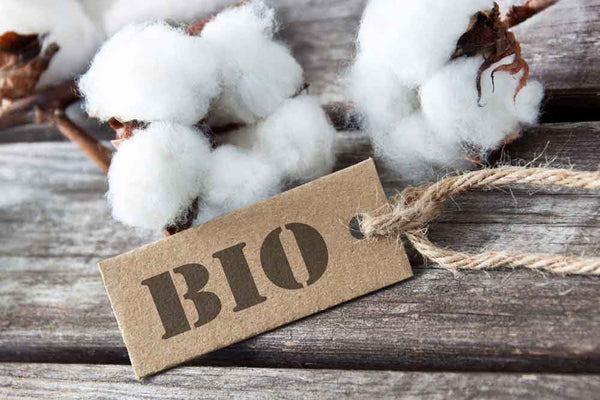LEARN MORE ABOUT FAIRTRADE

We could talk about Fairtrade forever. It's a great program, and we're happy that Cottover is able to participate. In short, Fairtrade is an international certification for commodities grown in countries with high poverty rates. The certification requires that the products are grown in accordance with high social, economic and environmental standards. However, Fairtrade offers much more, namely continuous protection for the workers behind the products.
Around a quarter of all workers worldwide are employed in agriculture, and Fairtrade focuses its attention on this sector. Behind every product we use every day are the people who grow goods such as coffee, bananas, wine and cotton. Cotton that is contained in the clothes we wear. Various criteria have been developed specifically for the farmers in the cooperatives, the employees on the plantations and the various raw materials. People are always at the center of all criteria.
Fair conditions for all
Everyone has the right to fair conditions, whether in the workplace or in everyday life. You, me and everyone else. An important part of Fairtrade's work is to lift both farmers and workers out of poverty and improve their working and living conditions. You could also say it is helping people to help themselves.
Farmers who are members of Fairtrade certified cooperatives can sell their cotton together. This gives them access to a larger international market with greater sales potential. A minimum price applies to the raw materials, which provides a safety net for the farmer when market prices are low.
Millions of children are working when they should be going to school. Quite simply because their parents' income is not enough to cover the family's needs. At the same time, we also know that education is one of the most important factors in reducing poverty. Thanks to higher wages, children can attend school.
The sale of raw materials also brings the farmers a premium, which is often used to build schools. But not only that, the premiums are also used for commercial transactions or community development projects in the areas of health and education, for improved infrastructure or for the conversion to organic farming.
Difficulties in the cotton industry

The cotton industry is a tough business for farmers. In countries with high levels of poverty, the survival of millions of farmers depends on the cotton industry.
The cotton flower grows on bushes that thrive in a dry climate where water is naturally scarce. This is precisely what leads to a "Moment 22", because conventional cotton cultivation requires large quantities of water. In addition to water, vast quantities of pesticides and fertilizers are also used. Conventional cotton cultivation harms both the population and the environment.
In recent decades, the price of cotton on the world market has fallen drastically. Today, the price of cotton is only a third of what it was in 1980. As a result, farmers and workers are less and less able to meet their own needs and those of their families. This is where Fairtrade comes in, namely with the minimum prices and premiums described above. Thanks to the Fairtrade premium, it is possible to invest in a drip irrigation system, for example, which can reduce water consumption by up to 70%.
Fairtrade cotton is mainly grown in India, which is also where the cotton for Cottover comes from. Farmers must belong to a cooperative in order to receive Fairtrade certification. In addition to minimum prices and premiums, Fairtrade also stipulates clear rules for the handling of chemicals and requires health promotion measures for all members of the cooperative. The Fairtrade criteria also promote long-term trading relationships that secure sales and therefore income.
For people and the environment
Are Fairtrade and organic farming the same thing? No, although they are often associated with each other, they are not the same thing. Fairtrade focuses mainly on the people behind the products by reducing poverty and improving working conditions. In addition, environmental requirements must also be met, such as the wise use of water and a ban on the use of genetically modified organisms (GMOs). Organic farming is mainly focused on the environment, even if it is also better for farmers due to the reduced use of chemical pesticides.
The majority of Fairtrade-certified farmers are also certified organic. The special feature of Fairtrade is that an appropriate wage level is guaranteed, which is not the case with organic certification. Through dual certification - Fairtrade and organic - both aspects can be covered. All the cotton in the Cottover collection is double certified, with Fairtrade and GOTS, an organic certification. Cottover also carries the Svanen and OEKO-TEX labels - so that as many sustainability aspects as possible can be covered along the entire production chain.
Choose Fairtrade and make a difference
If you're wondering why you should buy Fairtrade products as a consumer, the answer is: it's an easy way to make a difference for someone else. By choosing products with the Fairtrade label, you make it possible to improve the working and living conditions of those who grow and produce the goods you use every day. You are also helping to ensure that more children have the opportunity to go to school instead of being forced to work. We believe this is a good thing for the future.
Trending Searches : t shirt | winter jacket | country hunter | beanie cap | edelweiss shirt | edelweiss shirts | edelweiss shirt | softshell jacket men | polo shirts | hooded jacket | men's sweater | edelweiss store | edelweiss dresses | edelweiss clothes | black sweater | swing shirt | noble white shirt ladies | landjaeger | landjager | buy edelweiss shirt zurich | edelweiss hoodie | edelweiss shirt ladies | edelweiss shirt mens | buy edelweiss shirt | edelweiss tunic | underwear edelweiss | Chemise edelweiss (French) | Edelweiss shirt original | swinger shirt | edelweiss t shirt | edelweiss clothing | peasant shirt | edelweiss shirt | edelweiss blouse
